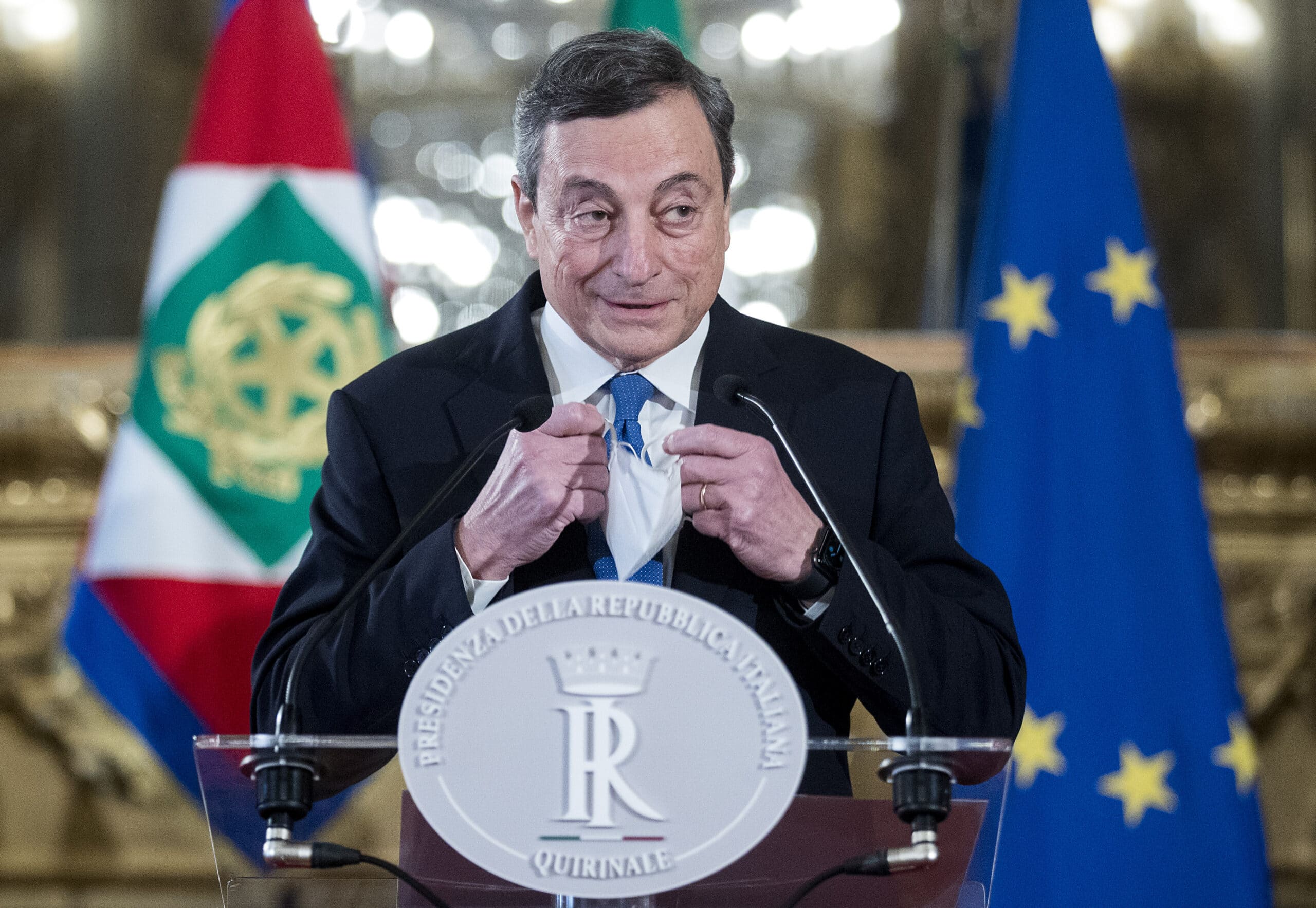The former ECB chief has been tasked with forming Italy’s next government. What impact will Mario Draghi have on Italy’s position on the geopolitical chess board, should he become PM? We asked a string of high-profile experts
“This is a difficult moment,” quipped Mario Draghi on Wednesday, as he formally accepted President Sergio Mattarella’s offer to form the next Italian government. That was arguably an understatement: the pandemic, the economic downfall and Italy’s decades-long stagnant growth will require the steadiest hand to steer the country out of the swamp.
Talks within the previous governing coalition had imploded the day before, prompting the President to hurriedly call the former head of the European Central Bank and ask him to become PM. Mr Draghi is now tasked with finding a stable majority in a moment of grave uncertainty, both internal and international.
“You cannot ignore the plea of the head of State while facing such an extraordinary situation for Italy and the world,” commented Andrea Manciulli, President of the Europa Atlantica think tank. He added that the choice of Mr Draghi rightfully emphasized Italy’s Euro-Atlantic anchoring to foreign eyes.
Arturo Varvelli, Director of the Italian office at the European Council on Foreign Relations (ECFR), told us that “the way he managed the economic crisis in 2012 makes it clear that he is the right man to act as an important reference point for Europe and the United States, both places that have characterised his educational and professional life.”
There is wide consensus that Mr Draghi’s globally acknowledged credentials will balance Italy’s traditional political instability, but the man itself is no silver bullet. Stefano Silvestri, Scientific Advisor for the International Affairs Institute (IAI), pointed out that the very act of choosing him signals that “once again we are in a political crisis, so the response of the political class is still unclear.”
“The government crisis has a strong international bond,” added Roberto Menotti, Senior Advisor for International Activities at Aspen Institute Italia. “Italy has raised concerns in the last months […] because of the medium-to-long haul choices it was sketching out, especially with regards to the use of the [Next Generation EU funds, amounting to €209 billion for Italy].” That, he added, was the real crux of the political crisis – and that’s why he spoke of a “Draghi cure.”
However, Rome’s sluggishness to deal with internal problems also translated to its loss of interest – and relevance – in international dossiers. Transatlantic relations, competition with China, and power games in the Mediterranean (especially with regards to Libya) will have a prominent place on the desks of Mr Draghi’s team, should he become PM.
In the words of the President of the Centre of International Studies (CeSI) Andrea Margelletti, “you cannot govern without realising that the world has changed, that it’s increasingly more integrated, and that what happens from the US to China has an impact on the citizens’ life.” Which is why Mr Draghi, with his proven international sensitivity, is the “high-profile person to allow Italy to become once more a main actor in Europe” – and by extension, the world.
Because of the direction taken by the Biden administration in the US, precious new opportunities await. “[President Joe] Biden will play the China game especially with Europe, trying to define analogies and differences between the American and the European stance, which is critical of, but more dialoguing with, Beijing,” said Mr Varvelli.
The expert maintained that the US will approach China on “two tracks:” one of engagement (on matters of environment, decarbonisation, Paris accords, health) and one of confrontation (on human rights South China Sea, defence of Japan, Taiwan and the Philippines). This, he says, is “roughly corresponding” to the European position.
With regards to the Mediterranean, he continued, Italy has been left behind on key matters, which are also crucial to its national interests, such as the Libyan crisis (think migration routes) and the East Med drilling (energy rights). Then again, the US could boost a stronger Italian initiative, since President Biden will be more engaged with Europe and the Mediterranean dossiers than his predecessor.
In short, Mr Biden’s arrival in the White House offers “positive occasions for relaunching Italy’s foreign policy,” concluded Mr Varvelli, “[…] and Mario Draghi will insert himself in [the European] mainstream perfectly.”








